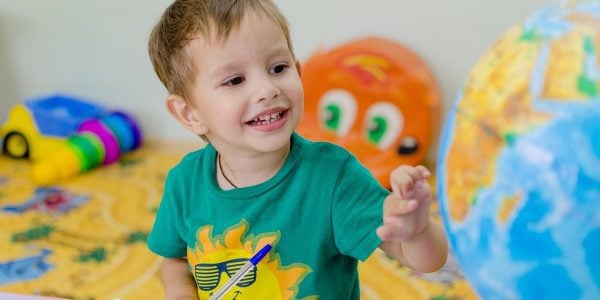Attending a nursery with highly qualified staff or an outstanding Ofsted rating has a limited benefit for children’s educational achievement.
A report published today by the University of Surrey and funded by the Nuffield Foundation reveals that a child’s educational achievement at the end of their reception year is only very slightly higher if he or she has been taught in nursery by a qualified teacher or early years professional. Attending a nursery rated as ‘outstanding’ by Ofsted, the regulator of educational quality in England, also has limited benefits. The research concludes that while there are important differences between the outcomes of children who attend different nurseries, we do not yet understand enough about what generates them.
The study, conducted by researchers at the Centre for Economic Performance (CEP) at the London School of Economics, the University of Surrey and University College London and funded by the Nuffield Foundation, matches data on children’s outcomes at the end of reception with information on nurseries attended in the year before starting school for 1.6 million children born between September 2003 and August 2006.
The UK government spends £2 billion a year on providing part-time nursery education for three and four year olds in England and pilots are underway to extend the current 15 hours to 30 hours. It is therefore important to understand the circumstances needed for children to benefit from nursery education.
Qualified teachers rare in private and voluntary sector
The researchers document that while the half of children who access nursery education in state primary or state specialist nursery schools are all taught by a qualified teacher, this is much rarer for the other half of children who attend day nurseries and pre-schools in the private voluntary and independent sectors. Less than a third of these settings has a teacher or early years professional working with children.
The researchers are also able to match their data to information on the most recent nursery inspection by Ofsted. In their sample, one in ten children attended a nursery rated as ‘outstanding’, two thirds attended a ‘good’ one, one in five attended one rated ‘satisfactory’ and just 2% attended a nursery rated ‘inadequate’.
Effects of graduate teachers on outcomes ‘extremely small’
While it is true that children who attend an outstanding nursery or one employing a graduate(s) do better, the effects are extremely small. Having a graduate in the nursery means that children have a teacher assessment (EYPS) score of one third of a point higher, where the total number of points available is 117. Attending a nursery rated ‘outstanding’ is associated with moving up less than one level on just one of the 13 scales that make up the Foundation Stage of primary education at age 5.
It therefore seems that commonly used measures of pre-school quality in England are not able to explain much of the variation in children’s outcomes at school. There is no evidence that effects are much larger for social development, or any other particular aspect.
To understand more about whether quality varies between nurseries, the researchers estimate whether similar children who attend different nurseries have different results in reception, again comparing children in the same infant school. They find that results do vary depending on the nursery attended, just not in a way that is predictable by staff qualifications or Ofsted ratings.
Co-author Dr Jo Blanden, Senior Lecturer in Economics at the University of Surrey, comments:
“Successive governments have focused on improving staff qualifications, based on the belief that these are important for children’s learning. Our research finding that having a member of staff qualified to graduate level working in the nursery has only a tiny effect on children’s outcomes surprised us, given existing research that finds well qualified staff have higher quality interactions with children.
“It is possible that our results are partly a consequence of the types of qualifications held by those working in private nurseries, as these are not generally equivalent to the qualifications of teachers in nursery classes in schools.
“Some nurseries are helping children to do better than others, but this is not related to staff qualifications or Ofsted ratings.
“It is extremely important to discover the factors that lead to a high quality nursery experience so we can maximise children’s chances to benefit developmentally from attending nursery, particularly as the government extends the entitlement from 15 to 30 hours.”
About the research
The children observed in nursery were in the year before they started school and were receiving their 15 hours of free nursery education provided to all children from the term after their third birthday. Previous work from this research project indicates that the introduction of this policy did little to raise children’s educational outcomes.
It is likely that better off children are more likely to go to higher quality nurseries because their parents can pay more or have better information. On the other hand, government policy has tried to ensure that all children had access to graduates by supporting training. It is therefore important to ensure that any differences observed between children who attend different nurseries are due to the nursery characteristics, and not driven by other factors. The researchers use statistical analysis to compare children with the same characteristics in terms of ethnicity, area deprivation level, free school meals status and speaking English as an additional language. Also the characteristics of the other children who attend the nursery are held constant. To ensure that children are as similar as possible, comparisons are only made between children who attend the same school in the following year.



















































